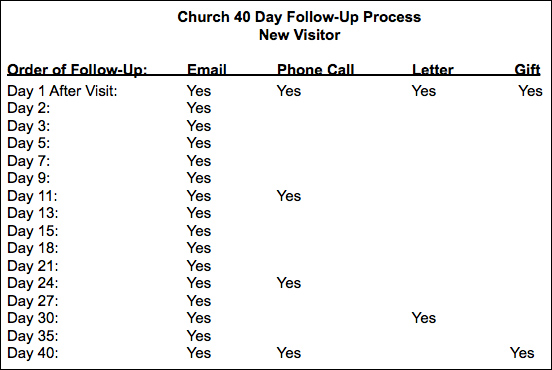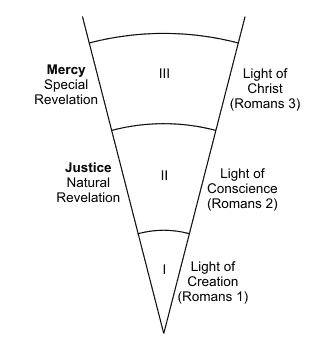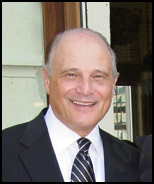What Doest Thou Here Elijah? by Shane Philpott
What Doest Thou Here Elijah?
Shane Philpott
Shane Philpott is the senior pastor of Christian Fellowship Church in Mason City, Iowa. Click here to learn more about Pastor Shane.
You can also check out Pastor Shane’s ministry resources (articles, videos, etc.) by clicking here.

 1 Kings 19:9 (KJV)
9 And he came thither unto a cave, and lodged there; and, behold, the word of the Lord came to him, and he said unto him, What doest thou here, Elijah?
1 Kings 19:9 (KJV)
9 And he came thither unto a cave, and lodged there; and, behold, the word of the Lord came to him, and he said unto him, What doest thou here, Elijah?
James 5:17 (AMP 17 Elijah was a human being with a nature such as we have [with feelings, affections, and a constitution like ours] …
Being in the ministry is quite an experience. There is no Bible College, seminary, or institution that can possibly prepare you for the inexhaustible assortment of circumstances that will be thrown your way as a minister. Just when you think you have heard it all, someone else walks into your office and blows your mind all over again. Just when you think you’ve seen it all, get ready, because the realities of ministry will take you down a whole other path you’ve never traveled.
In retrospect, answering the call to ministry probably proved to be the easiest part. After that decision was made is where things really got interesting. While in the service of the Lord we will at times dance on the highest mountaintops, while at other times trudge through the deepest valleys. There are very good days, and very bad days. People align with you, and people align against you. There are days when you feel like you’ve beaten the world, and there are days when you feel like the world has beaten you.
You discover what it means for God to prepare a table for you, but that it’s always in the midst of your enemies. You come to experience the comfort of His rod and His staff, but you realize that comfort is experienced because of the valleys and shadows. Eventually, if you stay the course, you begin to understand that for every John there is a Judas, for every lover there is a betrayer. Eventually, we all learn to really appreciate the words of Jesus when he said, "I was wounded in the house of my friends."
The Cave of Elijah
It was with this sobering knowledge of ministry that Elijah, the man of God, fled into the wilderness, ultimately finding himself alone in the cave. Or, rather, we should say that God found him there in the cave. It is remarkable to note that when we think of the cave, we think of isolation and loneliness. We think of despair. It is easy to picture Elijah here, probably because we can relate to his situation so very easily. We all know what the inside of the cave looks like. And like Elijah, many times we have run to the cave. Some ministers visit this cave only once or twice. Others go to the cave frequently. Still others have made the cave of retreat their permanent residence. No matter what the case may be, this one thing is true; we are to never stay there.
It is important to point out that the cave of Elijah was not a place of failure or defeat. On the contrary, the cave of solitude came after some pretty spectacular things. It was just prior to all of this that Elijah had issued his challenge to the prophets of Baal. Then, on Mount Carmel, God answered by fire, proving Elijah the true prophet of the one true God. After these false prophets had been slain, Elijah prophesied about the great rain about to break forth upon the land. Finally, we read about Elijah’s footrace with the chariots of Ahab back to the city of Jezreel. And then Jezebel comes into the picture.
In her rage at the slaying of the false prophets, Jezebel forwards her death threats to Elijah, swearing to take his life within a day. And how did Elijah handle this threat? He ran. We can only speculate on why Elijah ran. Was he afraid? Was he tired and exhausted? Was depression setting in? It’s easy to imagine the sheer amount of demonic forces Elijah faced in that hour. How was his mortal body handling all of these emotions and experiences?
Regardless of just why Elijah ran, it is imperative that we as ministers glean vital truths from the life of this man of God. The first vital truth is this: Whenever the power of God moves in demonstration in our ministry, Satan is always present with a follow-up attack. It is essential that we understand this, lest we drop our guard. That’s why it’s called warfare. That’s why it’s called a battle. It’s why we need both a sword and a shield. God moves, and then Satan moves. Perhaps one of the greatest examples of this principle is when Peter walked upon the water, and then sank in the water.
In the Wilderness
On Elijah’s journey to the cave, he finds himself traveling through a wilderness. What a heartbreaking word, the word "wilderness." We can all identify with the despair of that word. It is in this wilderness that Elijah drops to his lowest, crying out to God that he might die. The emotions that break forth upon our heart when we are cast down are many. Depression. Sadness. Loneliness. Isolation. Desperation. Fear.
The second vital truth we learn is that God, our Father, ministers to us in these times of need. "And as he lay and slept under a juniper tree, behold, then an angel touched him, and said unto him, Arise and eat. And he looked, and, behold, there was a cake baken on the coals, and a cruse of water at his head, And he did eat and drink, and laid him down again." 1 Kings 19:5-6 – KJV. It would be difficult to find a more beautiful description of God’s love for His minister. Here is the preacher, fleeing through the wilderness and driven by fear, found in his lowest state by the Father. There is no rebuke. There is no chastisement. There is no anger. Only food. And water. And rest.
God always seeks to strengthen us in our weakest times, and His desire is to lift us up when we’re down. He empowers us so that we might go forth again, not in our own strength, but rather in the strength of the Lord. It was in this strength of the Lord that Elijah journeyed for forty days and forty nights until he came to Horeb, the mountain of God. It was here, in the mountain of God, that Elijah found the cave of God.
A third vital truth that we come to understand is that God will always examine the motives of our heart before enlarging His assignment for us. After the Lord’s question to Elijah, "What doest thou here?" Elijah responds, "I have been very jealous for the Lord God of hosts: for the children of Israel have forsaken thy covenant, thrown down thine altars, and slain thy prophets with the sword; and I, even I only, am left; and they seek my life, to take it away." 1 Kings 19:10 – KJV. It is here that Elijah’s heart opens up. He communicates his passions to the Lord in simplicity and with honesty. God desires that all His ministers would come to him in such a way.
This cave was not a cave of defeat; it was a cave of retreat. It was in this place that God and His preacher met and they then reasoned together. It was in this seclusion that Elijah discovered that God was not in the wind or the earthquake or the fire, but that He was in the still, small voice. We must learn to hear Him in spite of all the distractions, commotions, and disturbances. "And it was so, when Elijah heard it, that he wrapped his face in his mantle, and went out, and stood in the entering in of the cave." 1 Kings 19:13 – KJV.
Back to the Battle
A final vital truth that we come to appreciate, when we’ve completed this process of faith testing and soul-searching, is that God stands ready to expand upon our calling. Reading further into 1 Kings we see that God then commands Elijah to go forth and anoint the kings of Syria and Israel. Additionally, the Lord tells Elijah to anoint Elisha to be a prophet in his room. It appears that the Lord wants Elijah to have help, companionship, and support as he ventures back into the battle. God then enlightens Elijah with these powerful words. "Yet I have left me seven thousand in Israel, all the knees which have not bowed unto Baal, and every mouth which hath not kissed him." 1 Kings 19:18 – KJV.
As preachers, pastors, and ministers we will undoubtedly experience great manifestations of the power of God, just as Elijah did. We will also come face to face with Satan’s counterattacks that he launches as a response to God’s goodness. But we are also human. Elijah was subject to the same passions, feelings, and affections that we are subject to. It is important to always remember that in the dark and difficult valleys of ministry is where God desires to show Himself the greatest. There is always a cave of retreat, a resting place, a shelter of safety where we can wait for the still, small voice of the Lord.
And when the Lord asks you, "What doest thou here?" you can answer, "I’m waiting on You. I’m resting in You. I’m trusting in You. I’m waiting for fresh oil, a new anointing, and an expansion of my assignment. I’m jealous for You, Lord, for Your people have forsaken Your covenant. Send me forth, O God, that I might bring an anointing to Your people."

 Rev. Jim Herring is gifted Bible teacher who ministers God’s Word in a passionate, powerful, and practical way. The focus of Jim’s ministry is to help believer’s overcome the trials of life, walk by faith, and reach their full potential in life.
Rev. Jim Herring is gifted Bible teacher who ministers God’s Word in a passionate, powerful, and practical way. The focus of Jim’s ministry is to help believer’s overcome the trials of life, walk by faith, and reach their full potential in life.
 Do you remember this song?
Do you remember this song? As we continually study the trends of church growth and visitor retention we’ve nailed down a few areas in which we need to examine in order to maximize our opportunities in building healthy sustained growth.
As we continually study the trends of church growth and visitor retention we’ve nailed down a few areas in which we need to examine in order to maximize our opportunities in building healthy sustained growth.
 The fallacy of the argument rests in this: No one is truly ignorant of God or of God’s will for his life. The Scripture declares that God has mercifully revealed Himself to all men in at least one of the following three ways (see accompanying illustration):
The fallacy of the argument rests in this: No one is truly ignorant of God or of God’s will for his life. The Scripture declares that God has mercifully revealed Himself to all men in at least one of the following three ways (see accompanying illustration): In previous articles, I have detailed the provisions of the Affordable Care Act (the “ACA” or “Obama Care” to some, depending entirely on your political persuasion!) and have discussed some of the things that non-profit organizations should be aware of. One very controversial aspect of the ACA is the employer mandate and the associated penalties for non-coverage required of individuals and certain businesses that fail to provide coverage all of which take affect in the 2014 tax year. It was thought by many that these provisions were unconstitutional and that the U.S. Supreme Court would strike them down. However, in June of this year, the Supreme Court upheld all provisions of the ACA, including the penalty and non-coverage provisions. As such, it is time to look ahead to understand and plan for how these provisions could affect your organization and your employee population.
In previous articles, I have detailed the provisions of the Affordable Care Act (the “ACA” or “Obama Care” to some, depending entirely on your political persuasion!) and have discussed some of the things that non-profit organizations should be aware of. One very controversial aspect of the ACA is the employer mandate and the associated penalties for non-coverage required of individuals and certain businesses that fail to provide coverage all of which take affect in the 2014 tax year. It was thought by many that these provisions were unconstitutional and that the U.S. Supreme Court would strike them down. However, in June of this year, the Supreme Court upheld all provisions of the ACA, including the penalty and non-coverage provisions. As such, it is time to look ahead to understand and plan for how these provisions could affect your organization and your employee population. After months of partisan debate, the “Patient Protection and Affordable Care Act” became law nearly two years ago, on March 24, 2010. This act is widely considered to be the most significant piece of medical insurance reform legislation in the past thirty years. Known generally as “health care reform” or “Obama Care” it is also highly complex and controversial, with major implications for the U.S. economy.
After months of partisan debate, the “Patient Protection and Affordable Care Act” became law nearly two years ago, on March 24, 2010. This act is widely considered to be the most significant piece of medical insurance reform legislation in the past thirty years. Known generally as “health care reform” or “Obama Care” it is also highly complex and controversial, with major implications for the U.S. economy. Doug wandered into a Church in the small town of Marysville in 1979 and that night would forever change his life. That night he met Jesus and the life of a drug dealer that had no real direction took on a whole new direction. Shortly after that Doug was called into the ministry and he began to share Jesus with all his friends and former associates, street witnessing and becoming the youth pastor at the Church where he’d been saved.
Doug wandered into a Church in the small town of Marysville in 1979 and that night would forever change his life. That night he met Jesus and the life of a drug dealer that had no real direction took on a whole new direction. Shortly after that Doug was called into the ministry and he began to share Jesus with all his friends and former associates, street witnessing and becoming the youth pastor at the Church where he’d been saved. 
 Marvin and his wife, Leah, are the founding pastors of
Marvin and his wife, Leah, are the founding pastors of  My Dad is 85 years old and still gets early up every morning between five and six o’clock to help milk cows. He has done that as long as I can remember. As kids growing up, we helped Dad with the chores every morning and evening.
My Dad is 85 years old and still gets early up every morning between five and six o’clock to help milk cows. He has done that as long as I can remember. As kids growing up, we helped Dad with the chores every morning and evening. "Lord, keep me straight. Don’t let me get off!" I prayed that simple prayer again this week as I have many times over the years. Whenever I hear another story about a preacher who gets off the path and falls into some kind of mess, I pray for him and all those who have been damaged by his dereliction. Then I pray for myself.
"Lord, keep me straight. Don’t let me get off!" I prayed that simple prayer again this week as I have many times over the years. Whenever I hear another story about a preacher who gets off the path and falls into some kind of mess, I pray for him and all those who have been damaged by his dereliction. Then I pray for myself.  Walker and Haley Schurz have lived and ministered in Southern Africa since 1994. After graduating from Oral Roberts University they attended Rhema Bible Training Center and graduated in 1991.
Walker and Haley Schurz have lived and ministered in Southern Africa since 1994. After graduating from Oral Roberts University they attended Rhema Bible Training Center and graduated in 1991.  As we walk through our Christian life, hopefully we will see more and more of God and who He is. Moses desired to see God and now we can see God’s fullness in the light of His son Jesus. We may miss out on experiencing a part of God’s nature if an aspect of Him remains clouded to us through ignorance. Unfortunately, some Christians do not realize that God is the one who heals us, provides for us and leads us by His Spirit. It is a wonderful day when the eyes of our understanding become a bit more enlightened so that we know Him better.
As we walk through our Christian life, hopefully we will see more and more of God and who He is. Moses desired to see God and now we can see God’s fullness in the light of His son Jesus. We may miss out on experiencing a part of God’s nature if an aspect of Him remains clouded to us through ignorance. Unfortunately, some Christians do not realize that God is the one who heals us, provides for us and leads us by His Spirit. It is a wonderful day when the eyes of our understanding become a bit more enlightened so that we know Him better. Guy Duininck earned a Bachelor’s Degree in Theology from Bethel College and attended Rhema Bible Training Center. Since 1981, Guy has traveled throughout the world teaching in local churches, Bible Schools and Ministers’ Conferences. With a strong emphasis on developing skilled spiritual leaders, strong local churches, and mature believers, Guy has significantly aided the Body of Christ in the places he travels. Guy has written five books, recorded six albums of his own music, and produced a number of audio teachings. The following article is an excerpt from Guy’s book, Grace for Effectual Ministry. You can obtain this book and learn more about Guy’s ministry by visiting his web-site at
Guy Duininck earned a Bachelor’s Degree in Theology from Bethel College and attended Rhema Bible Training Center. Since 1981, Guy has traveled throughout the world teaching in local churches, Bible Schools and Ministers’ Conferences. With a strong emphasis on developing skilled spiritual leaders, strong local churches, and mature believers, Guy has significantly aided the Body of Christ in the places he travels. Guy has written five books, recorded six albums of his own music, and produced a number of audio teachings. The following article is an excerpt from Guy’s book, Grace for Effectual Ministry. You can obtain this book and learn more about Guy’s ministry by visiting his web-site at  The specific task God assigns each believer determines the specific variety of ministry grace He endows them with. This truth is beautifully expressed by the Amplified Bible’s rendering of Paul’ words,
The specific task God assigns each believer determines the specific variety of ministry grace He endows them with. This truth is beautifully expressed by the Amplified Bible’s rendering of Paul’ words, Solomon was about to assume the throne of his father David, and he knew he needed help. So when the Lord appeared to Solomon one night and asked him what he desired most, the young man asked for only one thing: divine wisdom to help him lead the nation of Israel. Pleased with Solomon’s answer, God granted his request. In fact, Solomon went on to become the wisest man who ever lived!
Solomon was about to assume the throne of his father David, and he knew he needed help. So when the Lord appeared to Solomon one night and asked him what he desired most, the young man asked for only one thing: divine wisdom to help him lead the nation of Israel. Pleased with Solomon’s answer, God granted his request. In fact, Solomon went on to become the wisest man who ever lived!
 One of my favorite comedy movies was Mr. Magoo. Mr. Quincy Magoo is an eccentric millionaire with very bad eyesight who refuses to use eyeglasses and therefore always gets into trouble. During a museum robbery he accidentally gets a priceless gem called the Star of Kuristan, and begins to trace the way for the arch-criminals whose idea was to steal the gem, while two federal agents lead the manhunt for Mr. Magoo himself.1
One of my favorite comedy movies was Mr. Magoo. Mr. Quincy Magoo is an eccentric millionaire with very bad eyesight who refuses to use eyeglasses and therefore always gets into trouble. During a museum robbery he accidentally gets a priceless gem called the Star of Kuristan, and begins to trace the way for the arch-criminals whose idea was to steal the gem, while two federal agents lead the manhunt for Mr. Magoo himself.1 For more than 30 years, Pastors Mark and Janet Brazee have traveled throughout the world sharing the Word of God and the Spirit of God. Together they’ve shared the powerful truths of faith and healing in more than 50 nations.
For more than 30 years, Pastors Mark and Janet Brazee have traveled throughout the world sharing the Word of God and the Spirit of God. Together they’ve shared the powerful truths of faith and healing in more than 50 nations. Missions is the heart of God for God so loved the world—the entire world. As a minister and as a believer, we have one great commission—go into all the world and preach the Gospel to every creature. Building a ministry is fine, but that is not our calling. Building large churches, beautiful buildings, retirement centers and television ministries are all good things to do. But all this falls down the priority list after first of all going into all the world to preach the Gospel to every creature. Whether we are called as a frontier evangelist or a local family church pastor, our calling is first of all to missions.
Missions is the heart of God for God so loved the world—the entire world. As a minister and as a believer, we have one great commission—go into all the world and preach the Gospel to every creature. Building a ministry is fine, but that is not our calling. Building large churches, beautiful buildings, retirement centers and television ministries are all good things to do. But all this falls down the priority list after first of all going into all the world to preach the Gospel to every creature. Whether we are called as a frontier evangelist or a local family church pastor, our calling is first of all to missions.  As a kid, I wanted to be a lot of things. For a while I wanted to be a cowboy. Then, I wanted to be an FBI agent until I found out the requirements for being an agent, and I didn’t want to do that anymore. I wanted to be a baseball player, and then I wanted to be a mechanic and work on cars. My ideas of what I wanted to do kept changing as I grew up because of what I heard about these things. Hearing about something is exciting. It creates a desire within you to do or be what you’re hearing about.
As a kid, I wanted to be a lot of things. For a while I wanted to be a cowboy. Then, I wanted to be an FBI agent until I found out the requirements for being an agent, and I didn’t want to do that anymore. I wanted to be a baseball player, and then I wanted to be a mechanic and work on cars. My ideas of what I wanted to do kept changing as I grew up because of what I heard about these things. Hearing about something is exciting. It creates a desire within you to do or be what you’re hearing about.  Ephesians 2:8 For by grace are ye saved through faith; and that not of yourselves: it is the gift of God:
Ephesians 2:8 For by grace are ye saved through faith; and that not of yourselves: it is the gift of God: Joe Cala is the author of, “Living Your Life Today – The Fool Proof Way!” and “The Proven Formula of Success!” traveling minister, seminar leader, creator of “The Next Step Visitor Follow-Up System”, contributor of Personal Excellence Magazine and the founder of Joe Cala Ministries. Visit www.calaministries.org and contact Joe at 848-248-0730 or by email at
Joe Cala is the author of, “Living Your Life Today – The Fool Proof Way!” and “The Proven Formula of Success!” traveling minister, seminar leader, creator of “The Next Step Visitor Follow-Up System”, contributor of Personal Excellence Magazine and the founder of Joe Cala Ministries. Visit www.calaministries.org and contact Joe at 848-248-0730 or by email at  So what in the world does Anti-Lock Braking Systems (ABS) have to do with Visitor Follow-Up Systems (VFS)?
So what in the world does Anti-Lock Braking Systems (ABS) have to do with Visitor Follow-Up Systems (VFS)?  Kenneth W. Hagin, President of Kenneth Hagin Ministries and pastor of RHEMA Bible Church ministers around the world. Rev. Hagin began preparing for his call to ministry—a ministry that now spans 50 years—at Southwestern Assemblies of God University. He graduated from Oral Roberts University in Tulsa, Oklahoma, and holds an honorary Doctor of Divinity degree from Faith Theological Seminary in Tampa, Florida.
Kenneth W. Hagin, President of Kenneth Hagin Ministries and pastor of RHEMA Bible Church ministers around the world. Rev. Hagin began preparing for his call to ministry—a ministry that now spans 50 years—at Southwestern Assemblies of God University. He graduated from Oral Roberts University in Tulsa, Oklahoma, and holds an honorary Doctor of Divinity degree from Faith Theological Seminary in Tampa, Florida. Known for his entrepreneurial and intuitive management style which has created value and profitability for clients and company’s alike, John LaBruzzo brings thirty plus years of leadership experience to hospitality rooms and food and beverage operations, new project development and staff training and development in his consulting practice. With a functional speciality in food and beverage concepting and development; John has opened nine notable hotels from the ground up during his career as either General Manager or Development Team member. Among them, the Waverly in Atlanta, the Ritz Carlton in Washington, DC, The Peabody in Orlando and the Walt Disney World Swan and Dolphin Hotels in Orlando, Florida..
Known for his entrepreneurial and intuitive management style which has created value and profitability for clients and company’s alike, John LaBruzzo brings thirty plus years of leadership experience to hospitality rooms and food and beverage operations, new project development and staff training and development in his consulting practice. With a functional speciality in food and beverage concepting and development; John has opened nine notable hotels from the ground up during his career as either General Manager or Development Team member. Among them, the Waverly in Atlanta, the Ritz Carlton in Washington, DC, The Peabody in Orlando and the Walt Disney World Swan and Dolphin Hotels in Orlando, Florida.. Back in the day when Frank Borman was the President and CEO of Eastern Airlines there were abundant stories of his rampages with senior and junior managers on the never-ending quest to pursue excellence and to build the traveling public’s confidence in the then floundering airline.
Back in the day when Frank Borman was the President and CEO of Eastern Airlines there were abundant stories of his rampages with senior and junior managers on the never-ending quest to pursue excellence and to build the traveling public’s confidence in the then floundering airline.  For most church and ministry organizations, maintaining strong internal controls over the finance and accounting function is a difficult task. Clearly, a church or ministry’s main focus is the preaching and teaching of God’s Word and the finance and accounting function, while important, is often a secondary consideration. Additionally, in today’s modern world the virtues of convenience and speed of response are highly emphasized, often to the detriment of policies and procedures. While efficiency, convenience and responsiveness are admirable, ignoring or circumventing organizational internal controls can result in some very negative outcomes. As I have discussed in previous articles on internal controls, the current weak state of the U.S. economy has caused financial fraud to be rampant and churches and ministries are certainly not exempt from fraud schemes. Church and ministry organizations must continue to take proactive steps to protect themselves and establish strong internal control structures.
For most church and ministry organizations, maintaining strong internal controls over the finance and accounting function is a difficult task. Clearly, a church or ministry’s main focus is the preaching and teaching of God’s Word and the finance and accounting function, while important, is often a secondary consideration. Additionally, in today’s modern world the virtues of convenience and speed of response are highly emphasized, often to the detriment of policies and procedures. While efficiency, convenience and responsiveness are admirable, ignoring or circumventing organizational internal controls can result in some very negative outcomes. As I have discussed in previous articles on internal controls, the current weak state of the U.S. economy has caused financial fraud to be rampant and churches and ministries are certainly not exempt from fraud schemes. Church and ministry organizations must continue to take proactive steps to protect themselves and establish strong internal control structures. Our church needs an audit! That is the phone call that I have received so many times from pastors and churches across the country during my career. In most instances, this call is the result of one of the following events or “triggers”:
Our church needs an audit! That is the phone call that I have received so many times from pastors and churches across the country during my career. In most instances, this call is the result of one of the following events or “triggers”: 
 Mark Helland, CPA is a partner with the accounting firm of Elliott, Dozier and Helland, PC which is located in Tulsa, Oklahoma. For further information on this topic, Mark’s firm has a short report on basic fraud prevention tactics which is available to you at no cost. Mark can be contacted via email at
Mark Helland, CPA is a partner with the accounting firm of Elliott, Dozier and Helland, PC which is located in Tulsa, Oklahoma. For further information on this topic, Mark’s firm has a short report on basic fraud prevention tactics which is available to you at no cost. Mark can be contacted via email at 